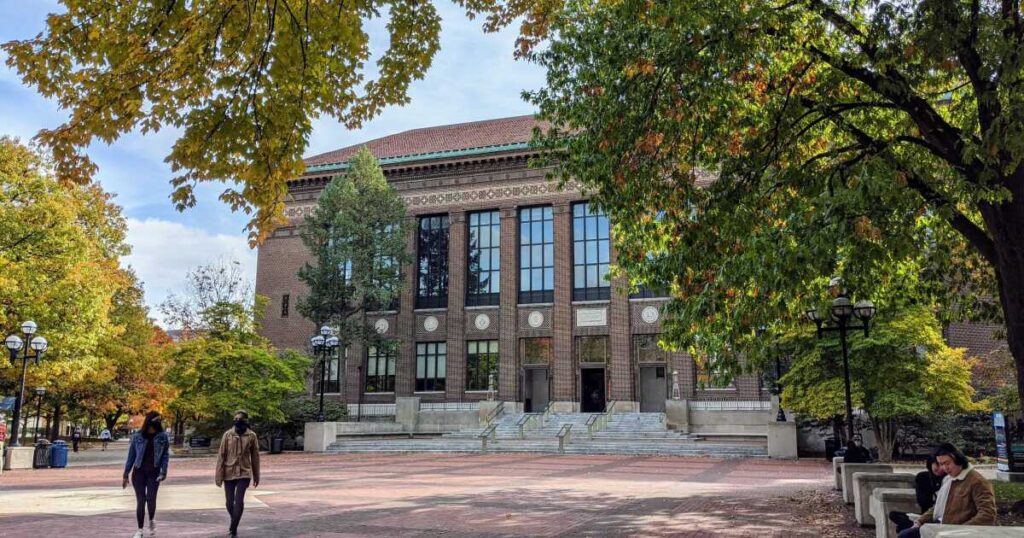Trump Administration’s Directive Challenges University’s Diversity Initiatives
Universities across the United States face a critical period as the Trump administration mandates the removal of diversity initiatives within two weeks to maintain federal funding. This directive, part of a broader campaign against so-called “wokeness,” has left educational institutions scrambling to adjust.
The Education Department issued a memo demanding the cessation of “racial preferences” in areas including admissions, financial aid, and hiring. Schools now have a 14-day window to discontinue practices that differentiate based on race.
Colleges nationwide are quickly assessing their exposure and debating whether to uphold practices they regard as lawful. This sweeping directive could significantly impact various elements of campus life, from application processes to the nature of classroom discussions and student organizations.
The memo aims to address what it perceives as widespread discrimination against white and Asian students. Craig Trainor, acting assistant secretary for civil rights, emphasized, “Schools have been operating on the pretext that selecting students for ‘diversity’ or similar euphemisms is not selecting them based on race. No longer. Students should be assessed according to merit, accomplishment and character.”
This guidance has sparked criticism from civil rights and university groups, who argue that its ambiguous language is designed to discourage schools from engaging with racial issues, even if those practices might stand up in court.
Jonathan Fansmith of the American Council on Education remarked, “Creating a sense of risk around doing work that might promote diverse and welcoming campuses is much more of the goal than a clear statement of existing law.”
The memo builds on President Trump’s executive order that banned diversity, equity, and inclusion (DEI) programs, reflecting a shift in the federal interpretation of antidiscrimination statutes. The administration cites the 2023 Supreme Court decision prohibiting race-based considerations in college admissions, claiming it has broader applicability.
“Put simply, educational institutions may neither separate or segregate students based on race, nor distribute benefits or burdens based on race,” the memo states.
In alignment with this guidance, the Education Department also announced a $600 million cut in grants for teacher training organizations promoting concepts like DEI, critical race theory, and social justice activism.
The directive explicitly targets areas such as financial aid, housing, and graduation ceremonies. It also warns against using non-racial information as a substitute for race, indicating that dropping standardized testing requirements to increase racial diversity could violate federal law.
Recent years have seen many colleges eliminate SAT and ACT requirements for various reasons, but the new guidance could challenge these practices.
The guidance appears to overreach beyond the Supreme Court’s ruling, likely triggering legal challenges, said Angel B. Pérez of the National Association for College Admission Counseling. While the decision bans race in applicant evaluations, the memo seeks to extend this prohibition to recruitment efforts.
Long-standing practices, such as recruiting from underrepresented regions or sourcing student lists with specific academic and demographic details, could become legal risks, Pérez explained. Companies like the College Board and ACT, which sell student lists to colleges, may face new scrutiny.
“Colleges and universities are going to find themselves between a rock and a hard place,” Pérez stated. “They know that what they’re doing is not illegal, but they are worried that if they do not comply, not having federal funding will decimate them.”
The memo also scrutinizes college application essays, questioning the extent to which institutions can invite students to discuss personal experiences, including race. Chief Justice John Roberts noted in the Supreme Court decision that colleges can consider applicants’ discussions of race impacts, provided it doesn’t serve as a workaround for racial considerations.
University of Michigan President Santa J. Ono acknowledged the ongoing efforts to comprehend the memo’s ramifications in a campus letter. Meanwhile, Oregon State University, after a legal review, concluded its programs are “fully compliant with all state and federal laws,” according to Rob Odom, vice president of university relations and marketing.
The directive challenges scholarships based on racial criteria, generating debate over whether the Supreme Court ruling extends to financial aid. Some institutions have already removed racial requirements from certain scholarships.
The National Association of Student Financial Aid Administrators expressed concern over the brief compliance window, stating, “What we do know, however, is that 14 days is insufficient time for schools to assess and implement any necessary changes to be in compliance.”
Confusion regarding Trump’s order was evident during the confirmation hearing for education secretary nominee Linda McMahon, who was uncertain whether classes on African American history would conflict with the president’s directive.





